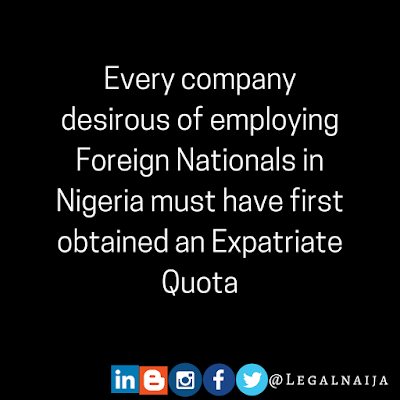
With approximately 188 million
inhabitants, Nigeria is the most populous country in Africa and the seventh
most populous country in the world. The country has one of the largest
population of youth in the world. In 2014, Nigeria overtook South Africa
to become Africa’s largest economy and in 2015, Nigeria was said to be the
world’s 20th largest economy, worth more than $500 billion and $1 trillion in
terms of nominal GDP and purchasing power parity respectively.
inhabitants, Nigeria is the most populous country in Africa and the seventh
most populous country in the world. The country has one of the largest
population of youth in the world. In 2014, Nigeria overtook South Africa
to become Africa’s largest economy and in 2015, Nigeria was said to be the
world’s 20th largest economy, worth more than $500 billion and $1 trillion in
terms of nominal GDP and purchasing power parity respectively.
With the stats detailed above, it
is no wonder the country has become a first port of call for Foreign Direct
Investors looking to invest in Africa. This article seeks to examine and point
out some salient facts every employer of Expatriate Employee must know while
operating in Nigeria. These industry practices and regulations apply to both
local and foreign companies.
is no wonder the country has become a first port of call for Foreign Direct
Investors looking to invest in Africa. This article seeks to examine and point
out some salient facts every employer of Expatriate Employee must know while
operating in Nigeria. These industry practices and regulations apply to both
local and foreign companies.
Permits and Licences
Every company desirous of
employing Foreign Nationals (“FN”) in Nigeria must
have first obtained an Expatriate Quota (“EQ”) from the
Federal Ministry of Interior (“FMI”). The EQ is a
condition precedent that must be fulfilled by any company (local or foreign)
employing FNs in Nigeria. The document details out the positions in the company
approved by FMI to be filled by FNs. It is important to state that the position
to be occupied by every FN must correspond with his qualifications. A concise
illustration of this point is that, it is very likely that The Nigeria
Immigration Service (“NIS”) would reject an application
for the resident/work permit of a FN who is an accountant and who is expected
to occupy the position of “lead engineer” in a company.
employing Foreign Nationals (“FN”) in Nigeria must
have first obtained an Expatriate Quota (“EQ”) from the
Federal Ministry of Interior (“FMI”). The EQ is a
condition precedent that must be fulfilled by any company (local or foreign)
employing FNs in Nigeria. The document details out the positions in the company
approved by FMI to be filled by FNs. It is important to state that the position
to be occupied by every FN must correspond with his qualifications. A concise
illustration of this point is that, it is very likely that The Nigeria
Immigration Service (“NIS”) would reject an application
for the resident/work permit of a FN who is an accountant and who is expected
to occupy the position of “lead engineer” in a company.
It is also expedient to note
that, flowing from a recently issued directive, companies operating in specific
sectors are required to join certain professional bodies before employing FNs.
E.g., companies operating in the engineering sector are required to register
with Council for The Regulation of Engineering in Nigeria.
that, flowing from a recently issued directive, companies operating in specific
sectors are required to join certain professional bodies before employing FNs.
E.g., companies operating in the engineering sector are required to register
with Council for The Regulation of Engineering in Nigeria.
STR and CERPAC.
For any FN to enter into Nigeria
for employment related purposes, particularly on a long-term basis, the said FN
must have obtained a Subject to Regularization (“STR”) visa from his
country of residence abroad. Upon arrival in Nigeria the FN is expected to
apply for a Combined Expatriate Resident Permit and Aliens Card (“CERPAC”) within 90 days of arrival. The application for
STR visa and CERPAC is to be made by the employer on behalf of the FN. The
employer must also undertake to bear full immigration responsibility on behalf
of the FN.
for employment related purposes, particularly on a long-term basis, the said FN
must have obtained a Subject to Regularization (“STR”) visa from his
country of residence abroad. Upon arrival in Nigeria the FN is expected to
apply for a Combined Expatriate Resident Permit and Aliens Card (“CERPAC”) within 90 days of arrival. The application for
STR visa and CERPAC is to be made by the employer on behalf of the FN. The
employer must also undertake to bear full immigration responsibility on behalf
of the FN.
Taxation of Expatriates
Pursuant to the Personal Income
Act, an employee is said to be resident in Nigeria if he is domiciled in
Nigeria for a period of 183 days or more in any 12-month period. Expatriates
who have obtained resident permit in Nigeria are liable to personal income tax.
Act, an employee is said to be resident in Nigeria if he is domiciled in
Nigeria for a period of 183 days or more in any 12-month period. Expatriates
who have obtained resident permit in Nigeria are liable to personal income tax.
In instances where the relevant
Inland Revenue Service (“IRS”) is of the view
that no or insufficient tax has been paid, the IRS has the power to assess
individual FNs on Deemed Income Assessment basis. When this happens, the onus
is on the employer to prove that the tax paid is sufficient by providing:
Inland Revenue Service (“IRS”) is of the view
that no or insufficient tax has been paid, the IRS has the power to assess
individual FNs on Deemed Income Assessment basis. When this happens, the onus
is on the employer to prove that the tax paid is sufficient by providing:
Contract
of Employment of the Expatriate;
of Employment of the Expatriate;
Travel
passport of the Expatriate;
passport of the Expatriate;
Expatriate
Quota Position granted to the company; and
Quota Position granted to the company; and
Monthly
quota returns for the company.
quota returns for the company.
Expatriate Pensions
Though section 2(1) of the
Pensions Reform Act 2014 provides that the act shall apply to every employment
in Nigeria, the Guidelines for Cross Border Arrangements under the Pension
Reform Act provides that “any foreign employee of a company registered in Nigeria
shall, at his/her discretion, join the contributory
pension scheme, without considering whether he/she has a pension arrangement in
his/her home country.” This means that the FN may maintain a
Pension Fund Administrator (“PFA”) in his home country or elect to join a
Nigerian PFA.
Pensions Reform Act 2014 provides that the act shall apply to every employment
in Nigeria, the Guidelines for Cross Border Arrangements under the Pension
Reform Act provides that “any foreign employee of a company registered in Nigeria
shall, at his/her discretion, join the contributory
pension scheme, without considering whether he/she has a pension arrangement in
his/her home country.” This means that the FN may maintain a
Pension Fund Administrator (“PFA”) in his home country or elect to join a
Nigerian PFA.
Change of Employment
The immigration regime in Nigeria
allows for change of employment of FNs already employed in Nigeria by a
previous company to another company. In instances of such, the consent of the
comptroller of immigration must be sought and obtained prior to changing such
employment. The previous employer is also required to issue a letter of no
objection to the employment of the FN by the new company.
allows for change of employment of FNs already employed in Nigeria by a
previous company to another company. In instances of such, the consent of the
comptroller of immigration must be sought and obtained prior to changing such
employment. The previous employer is also required to issue a letter of no
objection to the employment of the FN by the new company.
End of Expatriate Employment
Upon completion or termination of
an FN employment in Nigeria, the employer is expected to formally inform the
Comptroller General of the NIS of this fact. The reason of the aforesaid stems
from the need for NIS to be able to ascertain at any given time the number of
FN’s employed in the country, to keep records and also release the
employer from immigration responsibility as it concerns the exited FN.
an FN employment in Nigeria, the employer is expected to formally inform the
Comptroller General of the NIS of this fact. The reason of the aforesaid stems
from the need for NIS to be able to ascertain at any given time the number of
FN’s employed in the country, to keep records and also release the
employer from immigration responsibility as it concerns the exited FN.

Busayo Adedeji is an associate at
Bloomfield Law Practice. He has experience assisting clients on regulatory
compliance and general commercial law issues.
